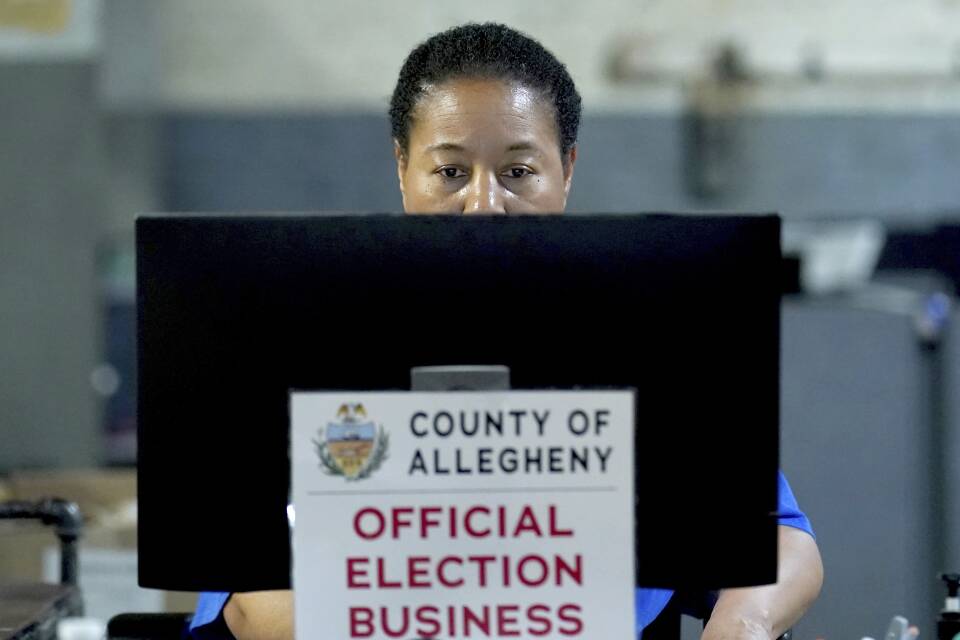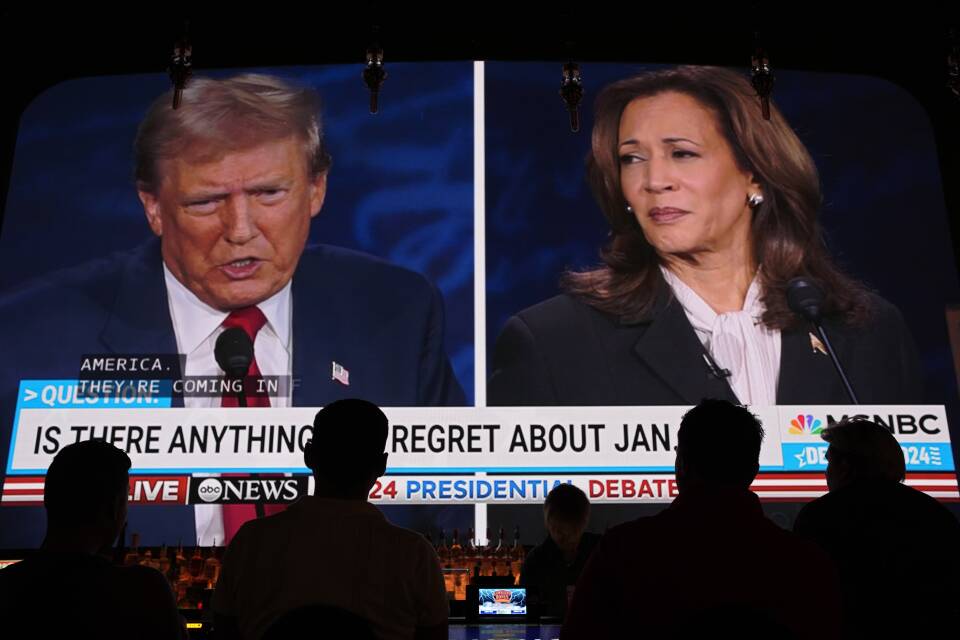On a tree-lined street in Byfield, on the North Shore, Mark Tashjian stood on the front porch of a house.
No one was home that Wednesday morning, so Tashjian, a Republican candidate for state representative, introduced himself remotely to the man who answered the video doorbell. He also promised to leave a door-hanger with his talking points.
Tashjian was working toward the goal of meeting everybody in the district — more than 40,000 people — and making sure they know they can reach out to share their concerns.
It’s a big goal for a tight timeframe.
“We have a lot of volunteers, I have a lot of enthusiasm and energy, and so we’re going to make it happen,” said Tashjian, a polo club owner from Georgetown.
For Tashjian and the handful of other candidates who earned their spots in Massachusetts’ general election through successful write-in campaigns in the primary, those nine weeks in between mark their only time to campaign as official candidates with their names on the ballot.
Candidates who want to run for office in Massachusetts typically have to be ready months before the election. Nomination paperwork became available in February, and had to be returned to local officials, with 150 voter signatures for House candidates and 300 for Senate hopefuls, by the end of April.
The alternative is to run as a write-in. These candidates run without filing nomination papers and without their name appearing on the ballot. To become their party’s general-election candidate, write-ins must get more votes than any other candidate and at least as many votes as the number of signatures they would have had to collect for a ballot spot.
Tashjian is running against Rep. Kristin Kassner, a first-term Democrat from Hamilton who turned that seat blue when she beat the incumbent, Republican Rep. Lenny Mirra, by a single vote.
In another district that’s recently flipped, Democrat Sheila Dibb hopes to retake a central Massachusetts state Senate seat for her party. Spencer Republican Peter Durant broke a decades-long Democratic streak when he won it in a 2022 special election.
A former Rutland Select Board member and self-described “municipal geek” who says she wants to give her slice of the state a voice on Beacon Hill, Dibb said her plan in the run-up to the election was to spend a full day in each of the district’s 22 communities.
“And it is getting out as many mailers as we can afford to ensure that the majority of voters know that they have an option out there — because maybe a few months ago, they didn’t,” she said.

Massachusetts has a pattern of holding among the country’s least competitive elections for state legislature. For the fifth cycle in a row, the elections website Ballotpedia ranked the Bay State last in the nation in its state-by-state competitiveness index this year.
Heading into the Sept. 3 primary, almost two-thirds of Massachusetts’ 200 state lawmakers were on track to cruise to another term without challengers, leaving millions of voters with no choice who represents them on Beacon Hill.
Dibb, Tashjian and the other candidates who landed on November’s ballot through the write-in process changed that dynamic slightly, adding more contested races to the mix.
Of the six contenders who won their party’s nomination via write-in campaigns, one — Westport Republican Christopher Thrasher — is seeking an open seat. Five others, all Republicans except for Dibb, are challenging current lawmakers who were otherwise unopposed.
On Cape Cod, Jerry O’Connell of Yarmouth is running against Dennis Rep. Chris Flanagan, the subject of a state campaign finance investigation earlier this year that found he fabricated information around a campaign mailer.
Wayland Republican Town Committee chair Virginia Gardner is challenging five-term Sudbury Rep. Carmine Gentile, and Dashe Videira, who chairs the Franklin Republican Town Committee, is trying to unseat Sen. Becca Rausch, a Needham Democrat.
Incumbents are rarely defeated in Massachusetts, and often have help defending their seats.
Gov. Maura Healey, Lt. Gov Kim Driscoll and several state lawmakers joined a “Women for Kassner” reception in September, with Healey’s campaign describing Kassner, Tashjian’s opponent, as a “constant advocate for the North Shore.”
Durant, who Dibb is challenging, spent almost twice what she did in September, and ended that month with almost three times as much money in the bank, campaign finance records show. Republicans cheered his special election win last year as a sign of momentum and interest in greater partisan balance at the State House, and current GOP lawmakers are among his recent donors.
Dibb said the first conversations she had about running for Senate came in June, at the state Democratic convention. Before Durant flipped the central Massachusetts Senate seat red last year, it had been represented by a Democrat for more than 50 years.
She said running as a write-in made sense to her because a campaign “wasn’t on my radar months ago.”
“I think this is a district with an enormous amount of strong Democratic possibilities and a lot of people who would have done a wonderful job,” Dibb said. “Is it possible that those people were focused on the national race? Is it possible, and maybe I will put this out there, that Boston in particular looked at this district and almost thought it had to write it off for being purple or even, dare I say, red? And I just think that’s not true.”
Tashjian said he launched a write-in primary bid because of the hurdles associated with getting on the primary ballot.
“Being new to the political process, which is, I think, a strength that I have, not being a lifetime politician — it was also a weakness where I missed one of the steps, so that’s why I ended up having to run as a write-in,” he said.








